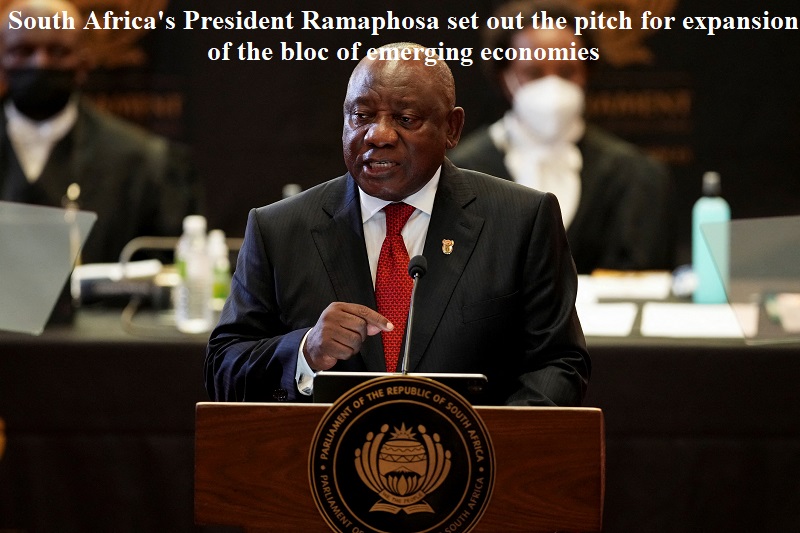
South African President Cyril Ramaphosa, in a speech preceding the BRICS summit in Johannesburg, presented his case for the expansion of the group of emerging economies currently composed of Brazil, Russia, India, China, and South Africa.
Ramaphosa also advocated for reforms within the United Nations Security Council while expressing his endorsement of the multilateralism represented by the United Nations.
He stated, “The United Nations Security Council must undergo a transformation to become a more inclusive and effective institution capable of ensuring global peace and security.”
The president of the host nation, South Africa, emphasized that the significance of BRICS extends beyond its mere size. He noted that to enhance the efficacy of economic cooperation efforts, BRICS should establish partnerships with other nations that share similar aspirations and viewpoints.
He further explained, “An expanded BRICS will encompass a diverse collection of countries with varying political systems but a shared goal of fostering a more equitable global order.”
Over 20 countries, including Algeria, Argentina, Bangladesh, and others, have formally expressed their interest in joining BRICS. Ramaphosa highlighted that the ongoing BRICS summit holds particular importance as the world grapples with fundamental challenges that are expected to shape international affairs for years to come.
Ramaphosa stated, “The global landscape has become increasingly intricate and divided, characterized by growing polarization between competing factions.”
He pointed out that the concept of multilateralism is being replaced by actions of distinct power blocs. Ramaphosa underlined South Africa’s commitment to advocating for an open and rules-based system of global governance, trade, finance, and investment. He stressed that this system should not rely on unilateral power but rather prioritize the well-being of people worldwide.
Ramaphosa reiterated, “Our aim is to revise the rules to make them more equitable, while ultimately promoting a transparent framework for economic and political relationships.”
Referencing the meeting between African Union leaders and Russian President Vladimir Putin in June, Ramaphosa acknowledged the efforts of the ‘Africa Peace Initiative.’ He highlighted its focus on repatriating children separated from their homes in Ukraine and facilitating prisoner exchanges to attain a lasting peace.
He asserted, “We firmly believe that dialogue, mediation, and diplomacy are the only viable routes to ending the ongoing conflict and achieving sustainable peace.”

Post Your Comments